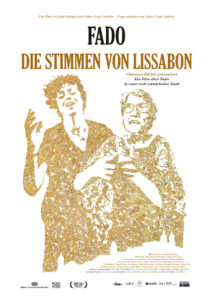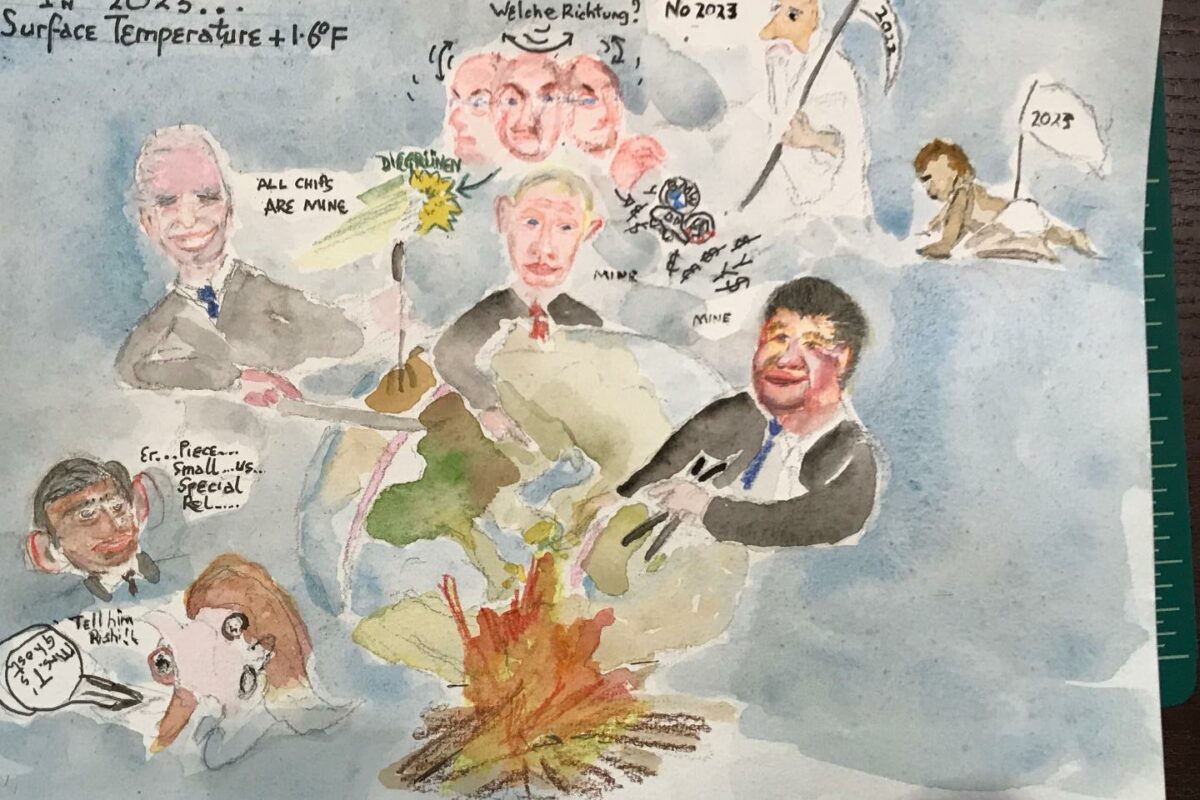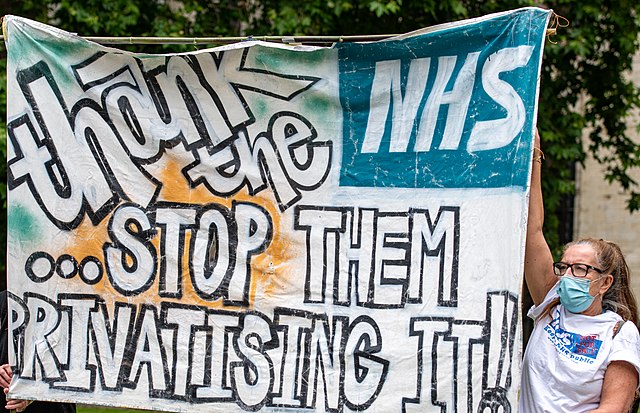This is my fifth annual review of films that I’ve seen (follow the links for articles on 2018, 2019, 2020 and 2021). This year, I reviewed 287 films – more than ever before. This meant that there were a few more pleasant surprises than previous years, but also many more duds. This year’s list of films to avoid is longer than ever.
Generally speaking, I’m never a great fan of Hollywood films, but this year contained a number of “alternative” films (such as Licorice Pizza, Elvis and Triangle of Sadness), which were loved by some friends, but didn’t do much for me. It’s surprising how many of this year’s favourites were only very briefly in the cinema. I recommend trying to seek them out if you missed them.
The normal rules apply. These are all films that I saw, either in the cinema or on a pre-release press stream, and which first appeared in Berlin cinemas in 2022. If you’d like to argue the toss with me about these or any other films, please feel free to subscribe to my film blog.
 Film of the Year: Summer of Soul (…Or, When the Revolution Could Not Be Televised)
Film of the Year: Summer of Soul (…Or, When the Revolution Could Not Be Televised)
Documentary about the “Black Woodstock” – 6 weeks of free concerts in Harlem in 1969. Worth it for the soundtrack alone, the film has a very shrewd understanding of the growth of the Black Power movement in the late 1960s, and its effect on a change of orientation in Black music. The sensational music builds up to a crescendo with a breathtaking performance by Nina Simone playing Young, Gifted and Black. Mixing music and politics has rarely been so much fun.
 Film 2 – Liebe, D-Mark und Tod
Film 2 – Liebe, D-Mark und Tod
There has been Turkish music in Germany ever since the arrival of Gastarbeiter in the 1960s. For the first couple of decades, this music was played largely inside Turkish-German communities. As Turkish migrants started to realise that their visit was less temporary than planned, the music became more mainstream. Many German-Turkish musicians identified with US rappers’ anti-racism. All this and more in a fascinating look at how music, social experience and politics interact.
 Film 3 – Bardo: False Chronicle of a Handful of Truths
Film 3 – Bardo: False Chronicle of a Handful of Truths
I’ve noticed how many of my films of 2022 are those which could have easily not worked. Bardo, Alejandro Iñárritu‘s follow up to Birdman and The Revenant, is nearly 3 hours long, willfully quirky and barely comprehensible for long periods of time. I normally hate films like this, but somehow it just works. In among all the weird shit, Bardo is a perceptive consideration of the identity of “first-class immigrants” – people with a good job in a different country who still suffer racism.
 Film 4 – The Divide
Film 4 – The Divide
Drama set in a French hospital on the edge of a Yellow Vests protest which has been attacked by the police. We see tensions between white- and blue-collar workers as they make assumptions about each other’s political ideas and the depth of their solidarity. Sub-plots mingle to produce a film which is both deep and has an astute understanding of the state of modern France. A film which could have easily been gauche and patronizing benefits from some very deft directing.
 Film 5 – Beyond the Infinite Two Minutes
Film 5 – Beyond the Infinite Two Minutes
Because of Science, a group of Japanese slackers are able to communicate with their past selves – from 2 minutes ago. Beyond the Infinite Two Minutes is a Japanese comedy about the Droste Effect, a scientific theory about infinite reflections through time. Unlike most science-based comedies, it is equally intelligent and silly, understanding the theories but never taking itself too seriously. It’s all the more fun for being filmed in real time. This year’s hidden gem.
 Film 6 – Happening
Film 6 – Happening
2022 was a bumper year for Annie Ernaux, who won the Nobel Prize for Literature and recently released a film of her Super 8 Films. This film, showing the realities for working class women trying to get an abortion in 1963 France, is also based on one of Ernaux’s books. It is an unsentimental look at a period where the sexual revolution was kicking off but not yet accompanied by legal protection for women. Essential viewing as a backlash hits the USA, Poland and elsewhere.
 Film 7 – The Reason I Jump
Film 7 – The Reason I Jump
Incredibly sympathetic film which attempts to do the impossible – articulate what it is like to experience severe autism. We see several autistic kids and their families and witness their different responses to time, colour and water, as well as the frustration they feel when they are not able to make themselves understood. The more you try to intellectually understand, the harder it is to articulate this in words, so maybe it’s better just to go and see the film for yourself.
 Film 8 – See How They Run
Film 8 – See How They Run
2022 contained some profound films, and several which were keen to show off their large budget. There were few films which were as much fun as this one. A murder mystery caper in which the murder happens in the opening scenes, and no-one really cares about who did it or why. It is all just the setup for a bunch of top rate actors running around and being silly. Films like this are often self-indulgent vanity pieces, which are fun to make but excruciating to watch. This one just works.
 Film 9 – Rabiye Kurnaz vs. George W Bush
Film 9 – Rabiye Kurnaz vs. George W Bush
Another film which could have gone dreadfully wrong with insensitive direction. A gauche working class Turkish-German woman travels to Washington after her son is sent to Guantanamo Bay. With the help of a conventional liberal lawyer, she sues the US government. In the course of all this, she learns of the complicity of Germany’s Red-Green government in her son’s incarceration. Based on a tragic true story, it is also a very funny comedy which never patronizes its main characters.
 Film 10 – Time of Pandemics
Film 10 – Time of Pandemics
Excellent documentary by Rehad Desai, director of Miners Shot Down and Everything Must Fall. Time of Pandemics explains how Covid swept through sub-Saharan Africa and particular South Africa. It is an indictment of the post-Apartheid government which did not learn from the earlier AIDS epidemic, preferring to line their own pockets. The film does not just blame South African governments, but also shows the culpability of conservative US governments and the WTO.
 Film 11 – The Tragedy of Macbeth
Film 11 – The Tragedy of Macbeth
Does anyone remember this one? A superior production of Shakespeare’s play directed by Joel Coen, atypically working without brother Ethan. Filmed in eerie monochrome, It looks spectacular and shows how Shakespeare can really work in the cinema. There’s a stellar cast led by Denzel Washington and Frances MacDormand, and the script’s not bad either. After a few misfires by the Coen brothers, this felt like a return to form for at least one of them.
 Film 12 – Blue Bayou
Film 12 – Blue Bayou
Blue Bayou is a drama which was only very briefly in cinemas, which is a great shame. On one level, it’s a family drama, but it also a heart rending depiction of the difficulties that some Asian Americans still have in retaining their citizenship. It is the story of the “mixed” couple Antonio and Kathy, who are constantly faced with everyday racism and institutional bureaucracy, while they are just trying to get by in the modern USA. All this and a Roy Orbison song too.
 Film 13 – Sweet Disaster
Film 13 – Sweet Disaster
A simple film about the chaotic life and love life of a kindergarten teacher with the help of her teenage neighbour and David Hasselhof (playing himself). On one level it is a bit of trivial fluff, although it does hit you deeper than you think. I saw Sweet Disaster twice this year – the second time by accident – but it was even better the next time round. Joyfully silly, and very similar in temperament and ambition to Cleo, one of my favourite films of the last few years.
 Film 14 – Silêncio – Voices of Lisbon (aka Fado – Die Stimmen von Lissabon)
Film 14 – Silêncio – Voices of Lisbon (aka Fado – Die Stimmen von Lissabon)
Ostensibly a documentary about Fado music, this film is much more. In particular, it looks at how gentrification is driving musicians and singers out of the centre of Lisbon. It has an ambiguous attitude towards the fleeting visitors who pass through on cruise ships. Tourists boost the local economy, while driving up the costs of food and housing. Changing economic circumstances are also changing the nature of songs being written, as we witness from the compelling soundtrack.
 Film 15 – The Devil’s Light
Film 15 – The Devil’s Light
The Devil’s Light, like Smile, also released this year, is part of a new wave of intelligent horror films. Early horror films were often more scary than political, while a second wave tried to explain everything in terms of social causes and individual trauma. Natalie, the leading character in The Devil’s Light is a trauma victim who is also in a fight with both Vatican patriarchy and the actual devil. Who’d have thought that a film about a female exorcist could be so much fun?
 Film 16 – Strawberry Mansion
Film 16 – Strawberry Mansion
What a Douglas Coupland would look like if you could get someone to transfer its essence onto a film screen. Strawberry Mansion is self-aware and clued into popular culture, probably too much for its own good. Set in a strange universe where dreams are taxed, it follows a taxman and the old woman whose dreams he audits. He enters her dreams to have a relationship with her younger self. If you watch the film in the wrong mood you may end up hating it. Otherwise it’s a load of fun.
 Film 17 – Debout les Femmes
Film 17 – Debout les Femmes
Debout les Femmes started as a documentary about female hospital workers, but when COVID hit in 2020 the combination of health cuts and increased patient needs was devastating. The film sometimes concentrates too much on two male MPs (one left wing, one libertarian) trying to push a bill through parliament, but the strength and determination of fighting working class women repeatedly breaks through. It shows the necessity of struggle and how it can change our ideas.
 Film 18 – Start Wearing Purple
Film 18 – Start Wearing Purple
Start Wearing Purple tells the story of the Berlin campaign to stop high rents by putting housing back into public ownership. The film shows how the campaign Deutsche Wohnen & Co Enteignen initiated a referendum to expropriate the big landlords. It ends just before the announcement of the referendum’s victory. This in turn was followed by the refusal of Berlin’s SPD mayor to implement the demands. Essential viewing if you don’t know the story. It’s time for a sequel.
 Film 19 – Bis wir Tod sind oder frei
Film 19 – Bis wir Tod sind oder frei
A comedy drama showing an unlikely alliance between an opportunistic crook, a radical female lawyer and a rebellious rich kid in 1980s Switzerland. Bis wir Tod sind oder frei is one of those films which says it’s based on a true story, but you’re never sure how much artistic license is being used. It makes some serious points about prison, but with enough humour and character development to prick any pomposity. Much more fun than you might be expecting.
 Film 20 – Me We
Film 20 – Me We
An Austrian drama about some problematic white responses to the “refugee crisis”. From the Guardian Angels who patrol bars, protecting “our girls”, via the unhealthy power relationship between a middle-class woman and the refugee she adopts, to the impatient activist helping out in Lesbos. The characters we see are all well-meaning but make the situation worse. Each is handled sensitively by a film which is able to differentiate between their good intentions and their effects.
And here are 8 films (in reverse order of badness) which you should just avoid):
8. Da kommt noch was A pedestrian satire on middle class pretensions, which has absolutely nothing to say, but is at least not downright offensive.
7. Risiken und Nebenwirkungen Yes, the privileged middle classes are as odious and racist as we think they are. We don’t need them making films about themselves to confirm this.
6. A-Man and the C-City Low-budget attempt to laugh at German Nazis. Would have worked better if it were actually funny.
5. Ticket to Paradise After shelling out money for George Clooney, Julia Roberts and an exotic location, they obviously had no money left to pay someone to write dialogue and plot.
4. Memoria Oh Tilda Swinton. You still rock, but what made you appear in this pretentious garbage?
3. Freibad Another German comedy which tries to be liberal (it even has a Muslim women in it) but ends up sneering at people who are poorer and darker skinned than itself.
2. Spencer – risible retelling of the Princess Diana story. The film wants us to love Di, but does this by portraying her as vain and living in an entirely different dimension.
My most hated film of 2022:
White Noise Maybe it’s because I saw it so recently, but I still repeatedly ask myself – just what is the point of this film? Other bad films can blame a lack of budget. White Noise just flaunts its inept pretension.




